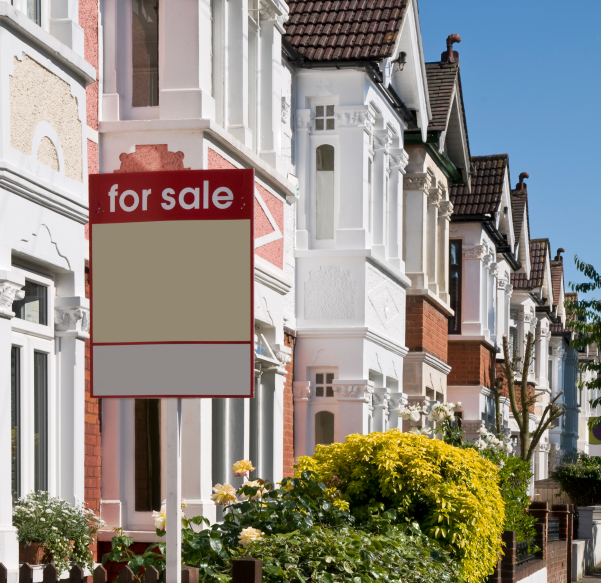
House prices remained largely flat and demand was at its weakest level since September 2023, according to property professionals polled for the latest Royal Institution of Chartered Surveyors’ index.
Both new buyer enquiries and agreed sales indicators moved deeper into negative territory in March, as macro-economic pressures and tariff wars weighed on sentiment, the survey found.
Estate agents and surveyors reported that the initial rush to complete sales before the April 1 deadline tailed off notably towards the end of March.
New buyer demand fell to a net balance of -32% in March, down from a reading of -16% overall last month.
Agreed sales also deteriorated to a net balance of -16% from -13% returned in the previous survey.
Three-month sales expectations suggest activity is likely to slow further.
The survey’s headline measure of house price sentiment showed a net balance of +2% this month, easing from readings of +20% and +11% in
January and February respectively.
This is consistent with price growth largely flattening out over the past few months, according to Rics.
In the rental market, a rise in tenant demand was reported by a net balance of +20% of respondents, the first increase since October last year.
Rics chief economist Simon Rubinsohn says: “The expiry of the stamp duty break was always going to lead to a pause in activity in the sales market.
“However, the latest results, and indeed the anecdotal remarks from respondents to the survey, suggest that the shift in sentiment has been aggravated by the slew of negative macro newsflow over the past few weeks.
“Looking forward, the impact on the market will in no small part depend on how the economy is affected by the emerging trade war and the response of the Bank of England to the shifting environment.
“For now, it is noteworthy that the longer-term RICS expectations metrics are still relatively resilient, but they have the potential to be blown off course if the tariff headwinds intensify.”
MT Finance director Tomer Aboody says: “We are seeing a slowdown in the market which correlates with the stamp duty changes, as well as further negative feelings within the macro and UK economic climate.
“This further proves that some assistance from the government is needed in order to stimulate growth.
“Hitting the UK with higher taxes, higher stamp duty along with businesses taking further hits from the October budget, has provided so much uncertainty and this slowdown.
“Let’s hope there are some positive changes to come.”
North London estate agent and former Rics residential chairman Jeremy Leaf says: “Not surprisingly buyer enthusiasm in our offices has waned a little recently given widespread economic uncertainty and the number of moves which were advanced in the last month or so to take advantage of the stamp duty concession.
“However, lack of appropriately-priced houses in particular, in some of our more popular areas, is helping maintain values as well as the prospect of perhaps mortgage rates falling further and faster than previously anticipated.
“Certainly, we have not seen evidence of widespread withdrawals from transactions or heavy renegotiations with most buyers and sellers adopting a wait-and-see attitude in the hope that markets calm down in the not-too-distant future.”
On the lettings market, Leaf adds: “Demand has been supported over the past few weeks at least by aspiring first-time buyers who were unable to profit from the stamp duty concession before it disappeared who were now looking to re-let.
“However, the continuing lack of stock and slow increase in the number of landlords wanting to sell has exacerbated the supply/demand imbalance and keeping rents up despite affordability concerns.”



